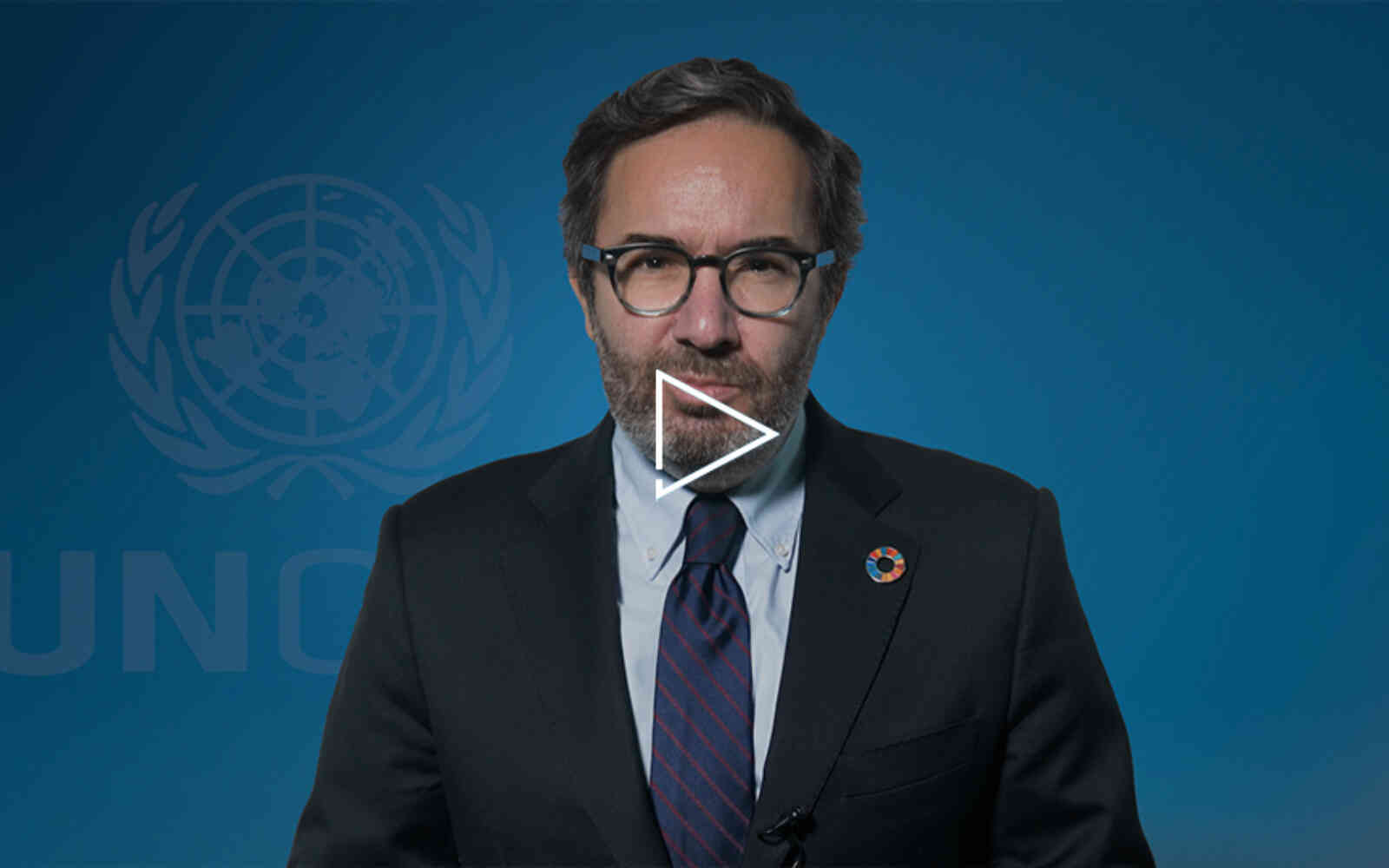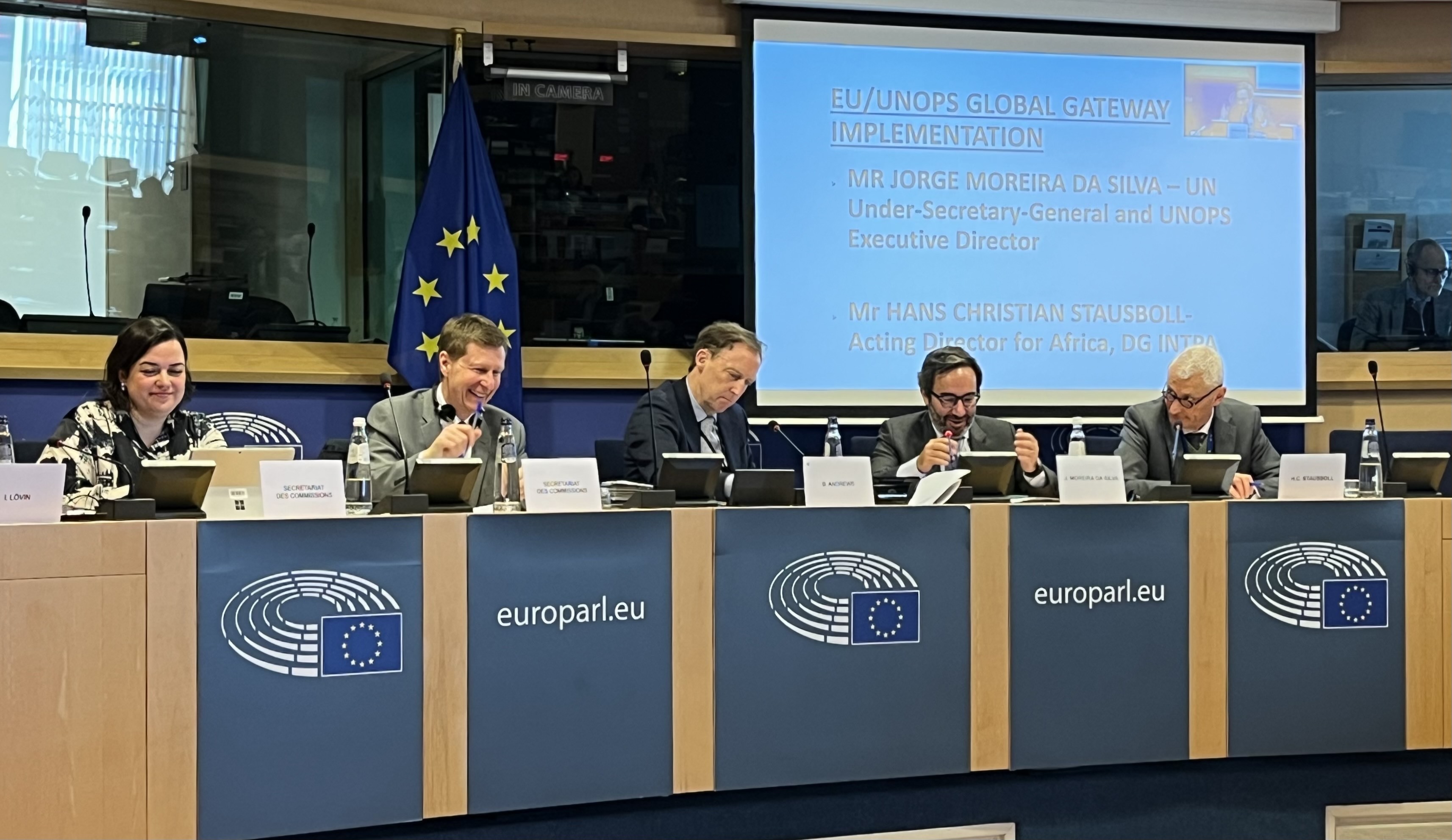The United Nations Office for Project Services (UNOPS)
Bahamas Symposium
Speech by Grete Faremo, Under Secretary General and Executive Director of UNOPS, at the Bahamas Symposium, Nassau, 21 February 2017
[Check against delivery]
Implementing the 2030 Agenda for Sustainable Development and the SAMOA Pathway in Small Island Developing States - SIDS: Equipping Public Institutions and Mobilizing Partnerships
Excellencies, colleagues, ladies and gentlemen,
I am very grateful for this opportunity to be here and talk today.
Because, in the end, it is all about implementation and that is what UNOPS is about. We get things done.
Just a few weeks ago, I met with a number of SIDS UN Missions in New York and presented UNOPS engagement in many SIDS. The projects I talked about in New York were oceans related, since oceans will be the topic of the big oceans conference coming in June.
But, we also do a great deal of other projects too, not least in SIDS. Our specialty is building and assisting in managing infrastructure – generally managing projects. And, doing procurement for the benefit of countries and organizations.
UNOPS stands out as unique in the UN system in two ways. We are fully self-financed. We do not receive core funding or grants, nor do we ask for it. We live off our competence, capacity and reputation. Half of our work each year is in implementing projects on behalf of other UN entities. The other half is done at the request of governments and financial institutions, such as the World Bank – we have a set of basic agreements with the World Bank to be drawn upon when projects come up for implementation.
We also work with foundations and – in the future – increasingly also with the private sector, which wishes to invest and engage in developing countries, and who are looking for a partner to help with implementation and mitigating potential risks.
The uniqueness of UNOPS is to be found in our special ability to act with speed and efficiency. We only do implementation; we are not a policy organization.
UNOPS is all about efficiency and speed.
The development needs of SIDS, as articulated by the SDGs, will require massive investment in infrastructure – both soft and hard. Countries must make use of all available knowhow and experience, and draw on project management expertise from outside sources.
UNOPS use local resources and employs people locally wherever we can. When we helped rebuild houses after the Haiti 2010 earthquake we used locally sourced materials. Three-quarters of the workforce came from the communities affected. We trained local suppliers on how to bid in tenders and meet sourcing requirements.
Globally, our projects created an estimated 42,000 local working days only last week, the same number this week and every week for the remainder of the year.
Another UNOPS specialty is procurement. In Honduras, we worked with the Ministry of Health to dramatically reduce procurement costs for drugs and medical equipment. The estimated millions of dollars in savings allowed the government to buy more drugs and equipment. A real dividend for the people of Honduras!
In 2016 alone, the 135 low and middle-income countries together spent between $2.4 and $3.6 trillion on buying goods and services. Clearly, only a small percentage saved will free up substantial resources.
Our global challenge, generally speaking, is not lack of capital.The challenge, in many countries, is to make the commercial and political risk acceptable to investors. I believe it is possible to do this in a sustainable manner. UNOPS is ready to invest a portion of our own reserves to become an enabler and partner to drive private-sector investment towards the implementation of the SDGs. If you want to hear more about this join me tomorrow during session III where we will be discussing partnerships.
We honestly do not believe that it is possible to achieve the SDGs without stronger private sector involvement, often in public-private partnerships, and typically so in the many middle income countries that do not receive much of the official development assistance earmarked for the poorest countries.
I believe that UNOPS is in many ways sensitive to the special situation of SIDS. There are a number of issues that we can discuss – from resilient infrastructure design and construction – to procurement leveraging UNOPS expertise and applying economies of scale or rapid deployment in the aftermath of natural disasters. SIDS have increased focus for many reasons, and I hope that our services can be put to use in order for you to reach your development objectives.











